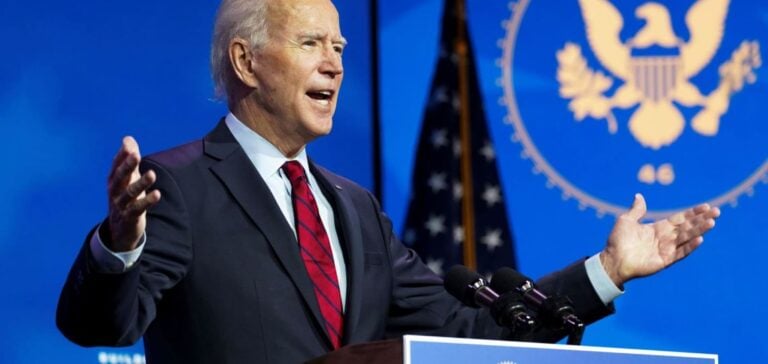President Joe Biden is about to take a crucial step by supporting an international reform to restrict public financing for oil and gas projects through export credits. This initiative, discussed during a meeting of the Organisation for Economic Co-operation and Development (OECD), aims to align wealthy nations’ climate commitments with the objectives of the Paris Agreement.
Since taking office in 2021, Biden has sought to reduce the environmental impact of activities funded by public entities. If such a measure is adopted, it could redirect funds toward renewable energy projects while reinforcing the United States’ leadership on climate issues.
A Necessary Reform in a Divided Energy Landscape
Export credit agencies, like the Export-Import Bank of the United States (EXIM), play a central role in financing international energy infrastructure. So far, these entities have allocated billions of dollars to oil and gas projects, despite the commitments of countries that signed the Paris Agreement.
The Biden administration is looking to introduce an emissions threshold to limit financing for high-carbon projects. This threshold would allow the administration to bypass objections from agencies that often cite their charters as preventing discrimination against specific sectors.
International Pressures and Political Challenges
The U.S. proposal follows a similar initiative by the European Union, which has advocated for banning export credits for oil and gas. Countries like the United Kingdom and Canada have already adopted similar policies, almost entirely cutting public financing to these sectors.
However, influential OECD members like South Korea are hesitant to endorse such a reform. South Korea’s shipbuilding industry, heavily reliant on liquefied natural gas (LNG) exports, could face significant negative impacts.
A Climate Legacy for the Biden Administration
This reform comes at a tense political time. With the imminent arrival of the Trump administration, supporters of the measure believe that a swift agreement at the OECD could lock in this policy, making it harder to reverse.
Climate advocates, such as Kate DeAngelis of Friends of the Earth, see this initiative as a pivotal moment. “This could be a turning point for U.S. climate commitments,” she says. However, challenges remain, particularly regarding the implementation of new rules by agencies like EXIM, which have historically been slow to adapt their practices.
Expected Global Impact
According to the International Energy Agency, reducing public financing for fossil fuel projects would free up resources to accelerate the energy transition. While the immediate impact of this reform might be limited, it could discourage private investments in risky, high-carbon projects.
This initiative marks a new chapter in U.S. climate policy and highlights the persistent tensions between environmental goals and economic interests. The coming weeks will be decisive in measuring the scope of this commitment and its impact on international energy cooperation.






















